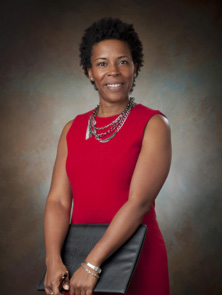 Last December, President Obama established the President’s Task Force on 21st Century Policing. Task Force members include police officials, law professors, attorneys, community organizers and nonprofit leaders.
Last December, President Obama established the President’s Task Force on 21st Century Policing. Task Force members include police officials, law professors, attorneys, community organizers and nonprofit leaders.
Sadly, missing from the Task Force are actual youth whose lives have been directly and indirectly affected by police violence and the resulting responses. Michael Brown, killed in Ferguson, Mo., was 18, and Tamir Rice, killed in Cleveland, was 12. Certainly they left behind young family, friends or acquaintances.
In the short- and long-term aftermath of Brown’s killing, scores of children in the St. Louis area were affected by school closings due to (potential) violence. Nationwide, media coverage and adult conversation concerning the deaths has provided an opportunity for children to hear about and try to process both police and community violence. Children exposed to violence, even indirectly, can experience short- and long-term negative impacts.
The Task Force will operate within a tight timeframe; it must provide an official report to Obama by March 2. To gather information, it will hold listening sessions involving invited speakers and some public question and comment. The first listening session will be held today in Washington, D.C.
Administration announcements regarding the Task Force have repeatedly emphasized the intent of involving youth leaders in the process. Obama undoubtedly recognizes that hearing and responding to the needs and concerns of children and young adults is significantly important to legal socialization of children and building present and future law enforcement-community trust.
However, the Task Force members are all adults, though several work or have worked with children. Adults who work with and represent children — while well-intentioned and likely informative — are not substitutes for hearing and learning from actual youth, including the youngest among them.
Practical constraints may have prevented appointing a juvenile to the Task Force, but overcoming such barriers and appointing a child would have substantially legitimized the concerns regarding police (mis)behavior for children and the role of youth in improving future police-citizen relations.
It is certainly possible that the Task Force’s information-gathering process will eventually capture the sentiments and suggestions of children in their own words, or recommend additional efforts to hear directly from children. But whether that will occur remains to be seen. Here’s hoping.
Andrea L. Dennis is an associate professor of law at the University of Georgia School of Law where she teaches and researches criminal law and procedure, family law and juvenile law.
